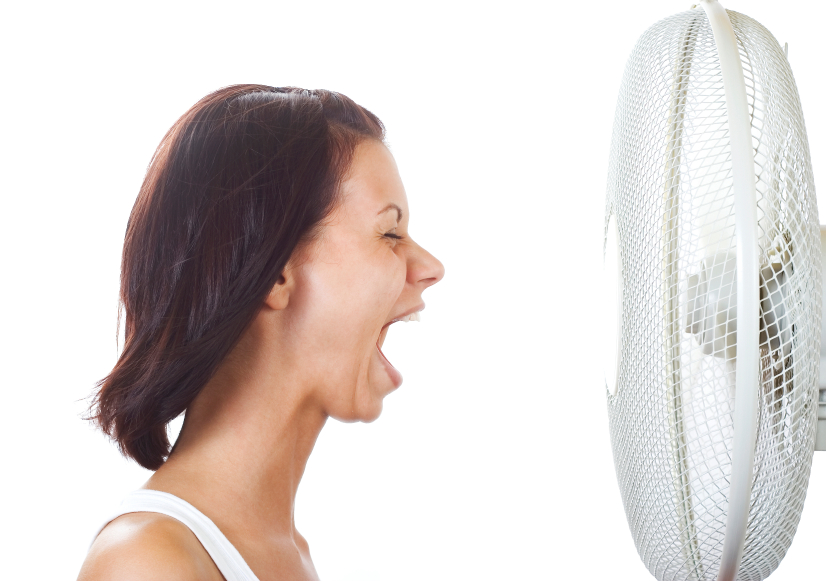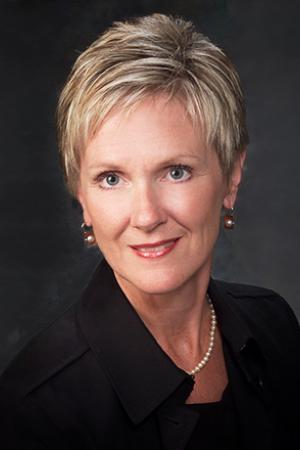
Now that the FDA advisory panel has pulled the plug on two nonhormonal drugs to treat hot flashes and night sweats, what’s a grumpy, sleep-deprived, sweaty, menopausal woman to do?
For most of us, hot flashes are uncomfortable and inconvenient. For some of us, hot flashes are debilitating and make it hard to sleep or function normally. And except for hormone therapy, no treatment regimen is guaranteed to alleviate them.
So, chalk up yet another inhibitor to sex (as if we needed one). It’s hard to feel “in the mood” when your nightie’s soaked and sweat is running down your back—and this is pre-foreplay.
It may be possible, however, to manage the frequency and intensity of hot flashes with some simple home remedies. For some women, these techniques work well; for others, not so much. As in so much of life, it’s a matter of experimenting until you discover what works for you.
These more natural approaches fall into four categories: lifestyle changes, identifying the triggers, controlling your environment, stress management, and botanical remedies. If you’re bothered—or handicapped—by hot flashes, a combination of these might help. Even if the cure isn’t perfect, your overall health should improve. In the long run, that’s a whole lot better than popping a pill.
Lifestyle changes
A generally healthy lifestyle goes a long way to making you feel better all over. You’ll mitigate other problems, like diabetes and obesity, and you just might find your hot flashes are less frequent and intense as well.
A healthy lifestyle includes:
- A diet of high-quality, fresh fruits and vegetables, whole grains, low in fat and processed foods
- Regular exercise that gets your heart-rate up and doesn’t injure your joints: brisk walking, swimming, free weights, yoga, tai chi
- Losing weight, if necessary. You may have put on some menopausal baby fat (haven’t we all?), but be aware that a higher body mass index is related to more frequent hot flashes, according to the North American Menopause Society (NAMS).
Identifying triggers
While hot flashes are maddeningly unpredictable, they often seem associated with certain triggers, which are unique to every woman. Try to identify yours. Common triggers include:
- Caffeine, alcohol, and cigarettes (even passive smoke may be trigger one)
- Anxiety, stress, and stressful situations
- Hot drinks and spicy foods. If you’ve ever watched someone eating a habanero pepper, well, that’s enough to give you a hot flash right there.
- Stress
- Hot, stuffy, or crowded rooms
- Activities that produce heat—ironing clothes, washing dishes, strenuous exercise
- Did we mention stress?
Managing stress
Stress is linked in several studies to more frequent hot flashes, and you can bet they’ll happen at the most inconvenient times. When you’re heating up at a stressful moment, remember that, while embarrassing and uncomfortable, hot flashes aren’t life-threatening or even particularly noticeable to others. A few inconspicuous comfort measures will help you get through the moment, even in tense situations:
- Breathe. Instead of panicking inwardly, consciously take deep, relaxing breaths.
- Get up and walk around.
- Open a window.
- Try meditation, massage, yoga, relaxation or other therapy.
- Maintain a sense of humor. You have to admit, the whole thing is kind of funny.
Controlling the environment
Because the hormonal changes you’re experiencing have temporarily (or not so temporarily) messed with your body’s temperature-regulating mechanism, you can compensate (in part) by controlling the ambient temperature. Some easy ways to do this include:
- Keep the house, especially the bedroom, cool and well-ventilated.
- Cotton (or fibers that wick moisture away from your skin) is your friend. Use cotton bedclothes and keep a spare pillowcase handy. Or, check out cooling bedsheets like those at DriNights. Keep a clean, cotton t-shirt beside the bed.
- “Keep a frozen cold pack under your pillow, and turn the pillow often.” (From NAMS)
- Check out the Dry Babe website for a line of “absorbent sleepwear for hot mamas.” These could lead to a little heated action of their own.
- Wear clothes in layers that you can shed or add as necessary.
- Carry a pretty Oriental fan in your purse.
Botanical remedies
Finally, a few botanicals have been associated with relief of hot flashes. Again, research is inconclusive: Some women are helped while others aren’t. But the remedies are relatively safe and free from serious side effects. You could try:
- Black cohosh. Already commonly used in Europe, this member of the buttercup family may be the most promising herbal treatment for hot flashes.
- Soy and red clover contain plant-based estrogen, which isn’t as effective and doesn’t work the same way as the estrogen synthesized for hormone treatments. Still, some women say they help.
- Vitamin E. Again, scientific evidence is scant, but some women say these supplements work for them.
Just because a supplement is “natural” doesn’t mean it’s automatically safe for everyone. Some herbal supplements are quite potent, and others could interact with medication you’re taking or exacerbate a physical precondition you already have. So consult with your doctor or pharmacist before taking botanical remedies.
If you discover a remedy that works for you—please share!
Your partner in midlife wellness,
Dr. Barb
